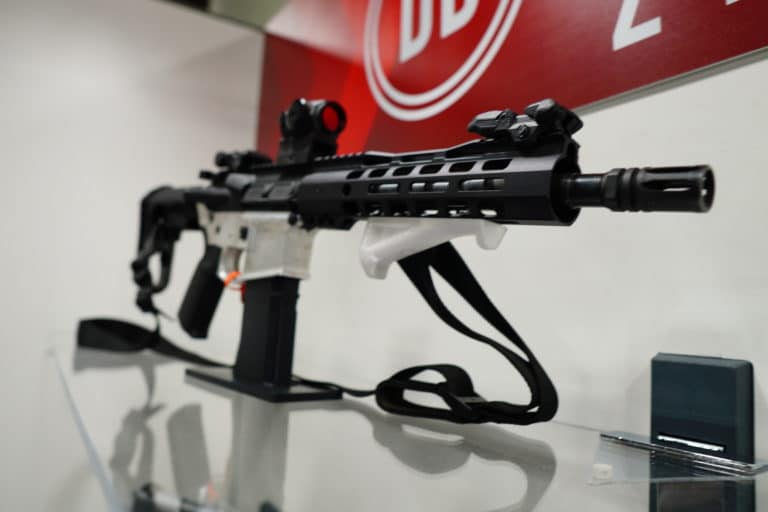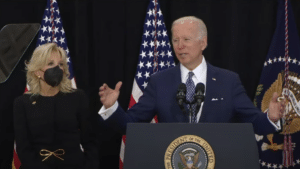Despite questioning their effectiveness, a Republican Governor has given the green light to new gun-control measures.
Vermont Governor Phil Scott (R.) allowed S.209 to become law without his signature on Tuesday. The bill prohibits the possession and transfer of any unserialized firearm, frame, or receiver, commonly referred to as “ghost guns” by gun-control advocates. It also bans the possession of a firearm at or near any polling place.
“While my concerns on the practical impacts and enforceability keep me from signing this bill, I’m allowing it to go into law because I understand the fears behind access to untraceable firearms and respect the effort to tailor the scope and exceptions to limit impact for law abiding citizens,” Scott said in a letter explaining his decision.
Scott’s action delivers another win for gun control advocates in a state with traditionally permissive gun laws. Once in effect, it will make the Green Mountain State the 14th to adopt restrictions on so-called “ghost guns.” It will also bring new gun-carry restrictions to a state that has never even required a permit to carry a firearm, the only such state in the country.
A Republican in a deep-blue state, Scott has played ball with progressive lawmakers on gun policy in recent years. Despite vetoing more bills than any other Governor in Vermont history, he has signed or otherwise allowed various gun-control measures, including ammunition magazine bans, universal background checks, and gun sale waiting periods. He extended that streak Tuesday by voicing support for regulating homemade gun hobbyists.
“As a public safety measure, I agree firearms should be serialized,” he said.
However, Scott critiqued lawmakers’ decision to make “mere possession” a crime under the law. He also questioned whether the bill would do anything to materially decrease violent crime in the state.
“Over the last decade, as anti-policing policies increased and criminal accountability has steadily decreased, violent crime has grown in Vermont,” he said. “This is why I believe we should instead focus on measures that will reverse these trends over those, like S.209, that are unlikely to have any measurable impact on violent crime.”
Despite Scott’s hesitance, his decision to allow the bill to take effect drew praise from gun-control advocates. Pat Byrd, a member of the Vermont chapter of Moms Demand Action, called it “a victory for gun safety and another example of the bipartisan progress we can make in Vermont to protect our communities.”
“Our lawmakers have demonstrated that they will put our safety first, and we look forward to building on this progress for years to come,” she said.
Gun-rights advocates, meanwhile, were much less enthused. Chris Bradley, president of the Vermont Federation of Sportsmen’s Clubs, told The Reload he was “not surprised” by Scott’s choice because he similarly allowed a waiting period bill to become law last year.
“Governor Scott did the same course of action with S.209 that he did with H.230,” he said.
Bradley’s group opposed S.209 while it was in the legislature, and they are currently in court fighting the state over last year’s waiting period law and ban on certain ammunition magazines. He said a new lawsuit against S.209 will have to wait.
“We will let [those cases] play out before we challenge other unconstitutional laws,” Bradley said. “It is shameful that Vermonters have to sue to obtain rights which should have never been infringed upon in the first place, and it is sad that Vermonters are paying the AG to defend these unconstitutional infringements and then have to repay our legal fees when, not if, we win.”
Unlike some “ghost gun” bans, Vermont’s law allows homemade gun enthusiasts to continue purchasing and assembling unfinished parts so long as they take them to a licensed dealer for serialization and a background check. The law makes possession of an unserialized firearm, frame, or receiver punishable by an escalating series of penalties, beginning with a fine and rising to a possible three-year prison sentence for subsequent violations. It also establishes higher penalties for anyone who commits a violent crime while in possession of an unserialized firearm or firearm component. The restrictions on unserialized firearms take effect next February.
Meanwhile, a person who knowingly possesses a firearm at a polling place or “on the walks leading to a building in which a polling place is located” would face up to a year in prison. That provision took effect immediately.






